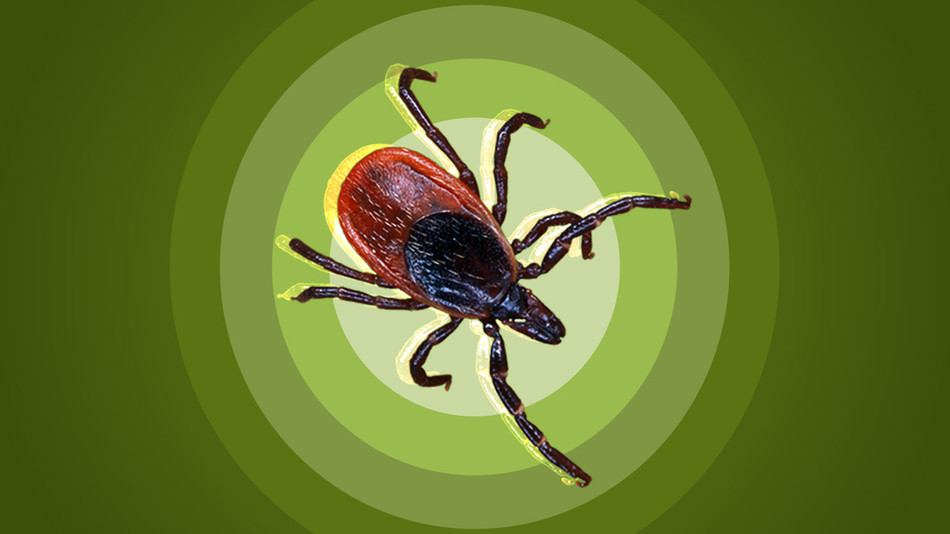Lyme disease, a tick-borne illness caused by the bacterium Borrelia burgdorferi, is one of the fastest-spreading infectious diseases in the United States, striking nearly five hundred thousand people annually. It is also among the most difficult conditions for physicians to diagnose and treat, since it is not easily detectable in blood tests and can attack the body in different ways, causing a multitude of ailments that vary from person to person.
In response to this growing public-health threat, a group of Columbia physicians who conduct research on tick-borne illnesses and who specialize in treating the most complex cases are now dramatically expanding their efforts. With a $16 million gift from the Steven & Alexandra Cohen Foundation, the group, led by Brian Fallon ’85VPS, ’85PH, a professor of psychiatry at Columbia University Irving Medical Center (CUIMC) and the director of Columbia’s Lyme and Tick-Borne Diseases Research Center, recently launched a new clinical program, the Cohen Center for Health and Recovery from Tick-Borne Diseases. It is the first in New York City dedicated solely to treating Lyme and similar conditions, like anaplasmosis, babesiosis, and Rocky Mountain spotted fever. Fallon says that the Cohen Center, while providing clinical services to patients in all stages of disease, will specialize in helping those who suffer from chronic health problems that appear to be the result of infections contracted months or even years earlier.
“Like COVID-19 ‘long-haulers,’ many people with tick-borne diseases experience a cascade of health problems that can persist long after the initial, acute stage of their illness is over,” says Fallon, who is directing the Cohen Center. He notes that as many as one in five people treated for Lyme disease goes on to develop a chronic condition that the US Centers for Disease Control and Prevention calls Post-Treatment Lyme Disease Syndrome (PTLDS), whose symptoms can include severe fatigue, joint and muscle pain, headaches, light and sound sensitivity, memory and other cognitive problems, and sleep disorders. “People with PTLDS often suffer for years without finding any relief,” says Fallon. “Their doctors, if they aren’t familiar with the latest research on tick-borne disease, may not recognize that these health problems can stem from an earlier infection.”
“Many patients with chronic symptoms related to tick-borne diseases are misdiagnosed with conditions such as depression, chronic fatigue syndrome, or even psychosomatic disorder,” says CUIMC neuropsychiatrist and Cohen Center codirector Shannon Delaney.
The Cohen Center builds upon work that Fallon, Delaney, and a handful of other Columbia physicians previously did at a much smaller diagnostic clinic at CUIMC. That clinic could accommodate only about ten patients a month. The Cohen Center, when fully staffed with six new Columbia doctors — including specialists in family, integrative, and behavioral medicine — will be able to serve ten times that number.
Fallon and his colleagues at the Cohen Center approach their work with the tenacity of private investigators, poring over patients’ old medical records, ordering batteries of blood tests, and conducting their own in-depth physical, psychiatric, and neurological evaluations, which can include brain scans. When needed, they bring in Columbia immunologists, infectious-disease specialists, rheumatologists, and neurologists. “To understand the nuances of each patient’s condition and to come up with a personalized treatment plan, you need to have multiple physicians involved, bringing different perspectives,” says Fallon, who is a pioneer in describing the neuropsychiatric effects of Lyme disease. “Our initial patient evaluations are extremely thorough, often running for several hours.”
Based on the clinical work that his team has done in the past, Fallon expects that he and his colleagues will be able to provide new diagnostic insights or treatment options for about two-thirds of the patients they see at the Cohen Center — an impressive number considering that most of the patients who come to his office suffer from health problems that other doctors have been unable to treat, or even name. As for treatments, the Columbia doctors have a range of interventions to consider. For example, if they suspect that someone is still infected with bacteria that they contracted from a tick bite, they may administer a new course of antibiotics; if they believe that a patient’s immune system overreacted to an earlier infection and has since been stuck in overdrive, attacking healthy tissues, they will consider treatments to calm the immune system; or if they believe that a patient is suffering from permanent tissue damage caused by the initial infection, they may recommend pain-management therapies, strength-building exercises, and energy-boosting lifestyle changes.
“There’s a growing body of research that suggests that non-pharmaceutical interventions including yoga, meditation, dietary changes, and various types of behavioral therapy can help relieve the pain, sleeplessness, fatigue, mental fogginess, and mood problems that people often experience when battling chronic illnesses,” says Fallon, whose own team recently conducted a study on the therapeutic effects of kundalini yoga. “At the Cohen Center, we’re very open-minded about what might help people.”
The new gift to Columbia is part of an ongoing effort by the Connecticut-based Steven & Alexandra Cohen Foundation to improve care for Lyme disease. The foundation, which is the largest private funder of Lyme-disease research in the US, is inspired in its work by Alexandra’s own battle with the illness.
The Cohens’ gift is also supporting the creation of a national clinical-trial network that Fallon will run in conjunction with Lyme-disease researchers at the John Hopkins University School of Medicine and Children’s National Hospital; the members of the network, by pooling their clinical data, hope to expedite the identification of new treatments.
“Tick-borne illnesses have long been shrouded in mystery, with scientists disagreeing on some of the most fundamental questions about how they affect the body, especially over the long term,” Fallon says. “But there’s been a tremendous amount of scientific progress made in the past few years, and I think we’re finally ready to start translating that knowledge into safer, more effective treatments.”
This article appears in the Fall 2021 print edition of Columbia Magazine with the title "New clinic will treat Lyme disease long-haulers."




